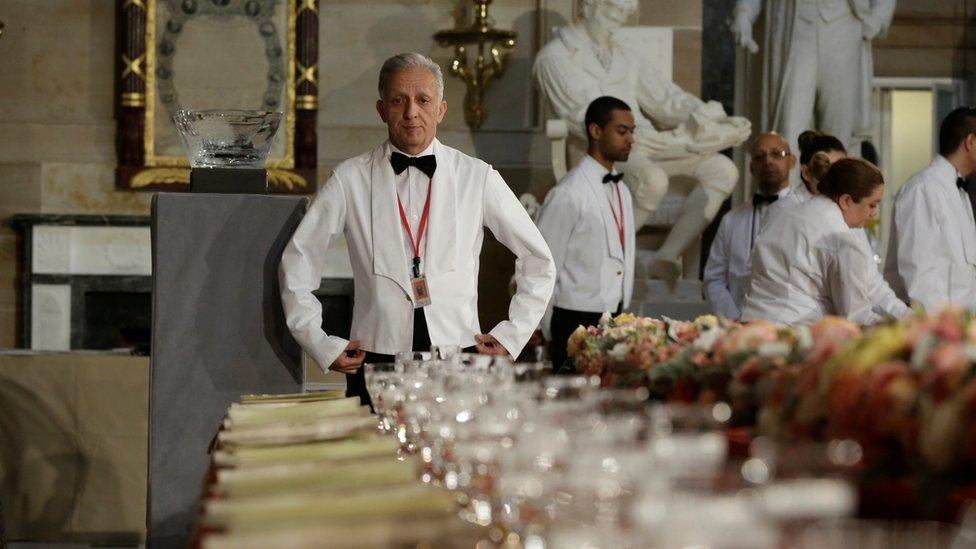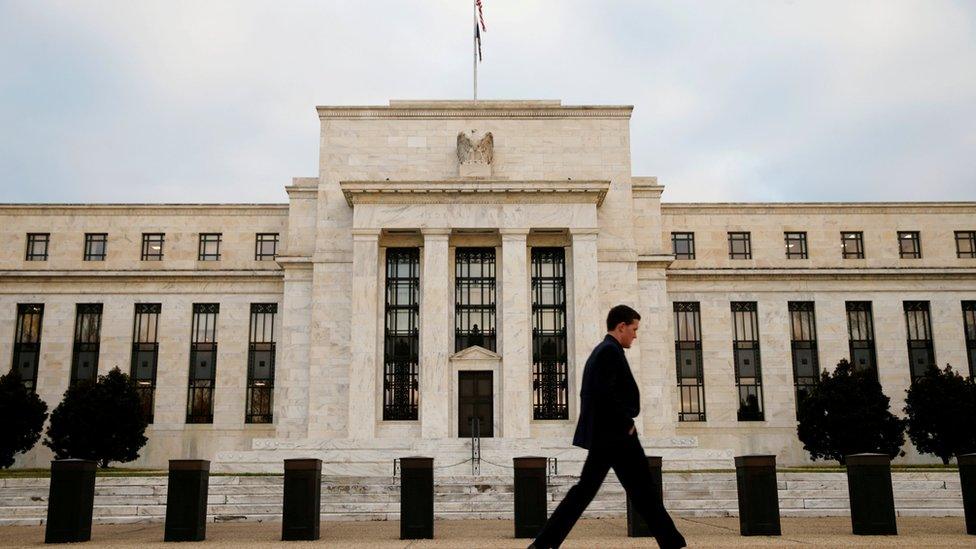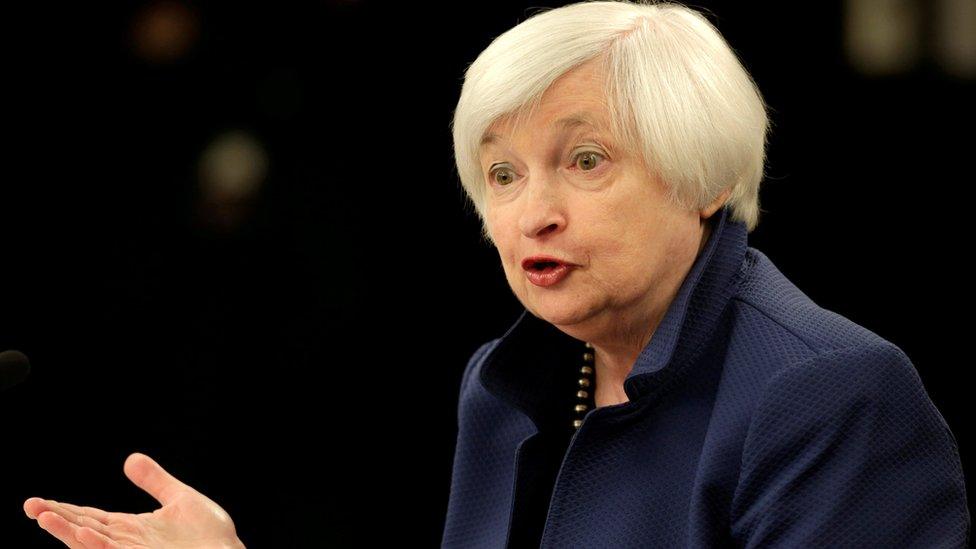US jobs growth accelerates in April
- Published

The US hospitality industry was one of the drivers behind the stronger than expected jobs figures
US jobs growth staged a bigger recovery than expected in April as businesses added 211,000 posts.
Figures from the US Department of Labour also showed the unemployment rate dropped slightly to 4.4%, compared with 4.5% in March.
The rebound in the jobs market could pave the way for the US central bank to raise interest rates in June.
The economy needs to create 75,000 to 100,000 jobs a month to keep pace with growth in the working-age population.
An unemployment rate of anything under 5% is considered to indicate full employment. The rate of 4.4% is the lowest since May 2007.
The rise in employment was driven by the leisure and hospitality sectors, health care and social assistance, financial activities and mining.
The report also showed average hourly earnings rose by 2.5% year-on-year, although this was down slightly on March's figure.
Rate rises
The jobs figures represented a strong bounce-back following the disappointing figures recorded in March, when only 79,000 jobs were created, said Kully Samra, UK managing director at Charles Schwab.
"With the Fed hitting the pause button in May, the recovery in today's employment data gives weight to the prospect of a further rate hike in June and the possibility of two or three more this year," he added.

The rebound in the jobs market could pave the way for the Fed to raise interest rates in June
Recent GDP figures showed the US economy grew at an annual rate of 0.7% in the first three months of this year, the slowest rate since the first quarter of 2014, raising concerns that the economy could be weakening.
Earlier this week, the Federal Reserve kept its key interest rate on hold in a range of 0.75% to 1%.
However, central bank also said it viewed "the slowing in growth during the first quarter as likely to be transitory" and still expected economic activity to "expand at a moderate pace".
This jobs report bolsters that interpretation, with gains across industries - even in sectors such as retail, which struggled earlier in the year, according to Gus Faucher, chief economist for PNC Financial Services.
"That's an indication that the economy is expanding at a steady clip in early 2017," he said.
With unemployment as low as it is, firms may have a harder time hiring and job growth could slow by the end of the year, Mr Faucher said.
But, he added, "that's not a sign of weakness in the US economy".

Analysis: By Andrew Walker, BBC World Service economics correspondent
It was a sharp bounce back after a very weak labour market performance in March. The average job growth for the year so far has been 185,000, essentially the same as in 2016.
Certainly the April jobs figures look consistent with the idea that the slowdown in US economic growth in the first three months of the year was "transitory", a view expressed by policy makers at the US Federal Reserve earlier this week, external.
If the evidence continues to support that view, then we can expect the Fed to raise interest rates again at meeting next month. That's certainly what the financial markets expect. And they are always right, aren't they?

- Published3 May 2017
